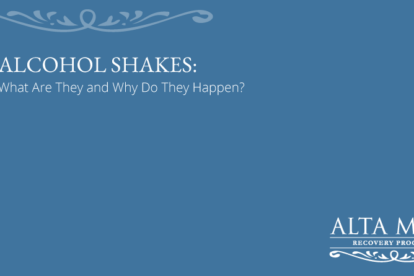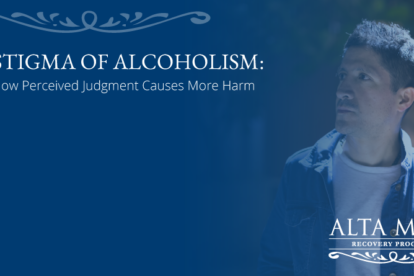If My Wife Drinks While She’s Pregnant, Will My Baby Have Fetal Alcohol Syndrome?

Living with a wife struggling with alcoholism is tough, perhaps even more so when you’re expecting or planning on a child. By knowing the causes of fetal alcohol syndrome, you can both begin to understand the importance of medically supervised detox and the benefits of treatment. Once detox is over, you can walk hand-in-hand down the road to recovery.
Christina’s drinking was escalating, and so were her husband Carlos’s fears for the health of their child.
Carlos knew the dangers of withdrawal from personal family experience. Alcoholism ran rampant in his extended family, and he didn’t want to see her go through the shaking, the tremors, the seizures his cousins had described to him in painful detail. He feared for his and child, but didn’t know where to turn.
It’s well-known that drinking alcohol during pregnancy can affect the child, and there is no “safe” amount of alcohol to consume during pregnancy. With that being said, most of us have met people who have had a drink or two during pregnancy and had children with no problems. And when you’re the husband of a wife struggling with alcoholism, it might feel comforting to hope that this will be the case for you.
But the only way to prevent fetal alcohol syndrome is to help your wife treat and address the root of her alcoholism with the help of medical professionals. This is especially important for chronic alcoholics, as removing alcohol from the system abruptly is dangerous for both mothers and unborn children. It’s a delicate situation, one in which emotions tend to run high, and it can be difficult to know what the right decision is for you and your family. Residential treatment, however, provides you with both the medical and personal support you and your wife need to get through this difficult time and make the best decisions for you, your wife, and your child.
The Causes of Fetal Alcohol Syndrome
Drinking during pregnancy exposes your child to alcohol, as it passes right from the mother’s bloodstream into that of the child. At this point in the womb, your baby doesn’t have a fully functioning liver, meaning it can’t process or break down the alcohol, creating a dangerous situation which can result in organ damage.
Alcohol affects the baby most during the first trimester, when the brain is still developing. An interruption of this development by drugs like alcohol can cause serious problems that become apparent once the baby is born.
Some physical symptoms of fetal alcohol syndrome include:
- Facial abnormalities
- Heart defects and ongoing cardiac problems
- Low body weight, at birth and later
Behavioral symptoms include:
- Developmental delays
- Hyperactivity
- Poor focus and concentration
- Inability to sleep, or excessive sleep
- Disorganization
- Underdeveloped social skills
- Learning disabilities
In order to reduce the chances of your baby experiencing these symptoms, your wife needs to enter a treatment program. It’s important that she undergoes a medically supervised detox to ensure that the alcohol is removed from her system safely, both for her own sake and your child’s.
The Importance of Medically Supervised Detox
Any drug that affects the GABA receptors, including alcohol and benzodiazepines, comes with some heavy dangers during withdrawal. Going cold turkey is dangerous and can lead to vomiting, psychosis, and seizures. During pregnancy, these effects not only put your wife’s life in danger, they threaten your child’s safety as well.
By undergoing medically supervised detox in a professional treatment center, your wife will be able to stop drinking in a way that doesn’t put her or your child at risk. Long-acting benzodiazepines are commonly used for serious cases, as they can help with the safe removal of alcohol from the body without shocking your receptors. But in the case of pregnancy, this is generally a last resort.
On top of providing your wife with a safe means of clearing out her system, it also provides her with a chance of exploring the root causes of her addiction. Physical withdrawal is difficult, but true addiction treatment is far-reaching, addressing its behavioral and emotional impacts. With the threat of physical withdrawal under control, she will have more strength and energy to address these facets of her addiction.
The Road to Recovery
Whether your wife is pregnant or you’re planning on having a child, addressing alcoholism in a comprehensive residential treatment program is a crucial step in the alcoholism recovery process. Although the first step into detox is difficult, knowing that it can proceed in a way that prioritizes the health of your wife and child is a huge motivator. It’s never too late to begin, and the path it creates is one that will promote positive change.
With therapy sessions for both you and your wife, experiential therapy, and various workshops, you will find that the road to recovery is a learning process for the both of you. She will have the tools and environment necessary to address the contributing factors of her addiction, and you will be able to grow and heal with her. The fears that you have about the health of your wife and child will subside, and you’ll be able to focus on your happy future together at last.
In residential treatment, Christina was able to quit drinking in a safe, comforting environment surrounded by people whose first priority was the well-being of both Christina herself and the baby she carried within her belly. To her and Carlos’s great relief, she eventually gave birth to Camille, a beautiful, healthy baby girl.
Alta Mira offers comprehensive treatment for people struggling with drug and alcohol addiction as well as co-occurring mental health disorders and process addictions. Contact us to learn more about our renowned programs and how we can help you or your loved one start the journey toward recovery.






